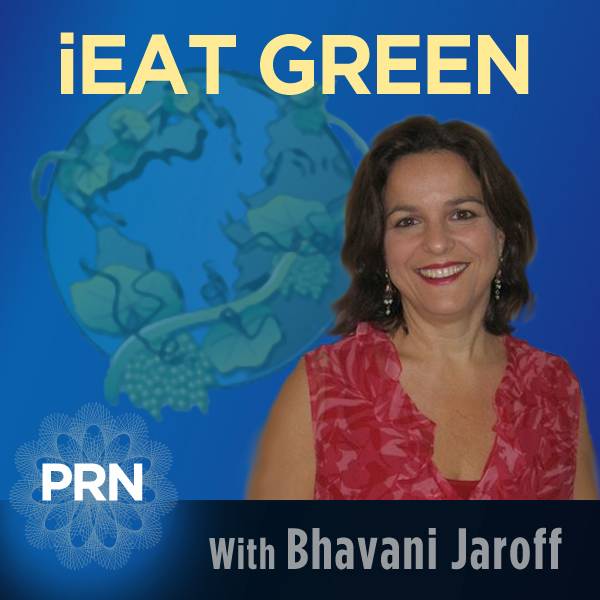iEat Green - 04.01.21 - Joshua Sbicca, Justine Lindemann, Antonio Roman
Description
Joshua Sbicca is Associate Professor of Sociology at Colorado State University. As an educatorand scholar-activist he ties his work to grassroots initiatives to advance food system change andeconomic and racial justice. His research and teaching engage with food as a site of economic,political, and social struggle. His recent work focuses on food systems and cultures and socialmovements at intersections of carcerality, gentrification, and racial capitalism. Underlying theseinterests is an ongoing engagement with how activists and scholars articulate and practice foodjustice and what this means for building broad based social movements. He is the author of FoodJustice Now!: Deepening the Roots of Social Struggle. He is also the co-editor with Alison HopeAlkon and Yuki Kato of A Recipe for Gentrification: Food, Power, and Resistance in the City. Justine Lindemann (PhD, 2019, Cornell University) is an Assistant Professor of CommunityDevelopment and Resilience in Penn State University's College of Agricultural Sciences. She hasseveral years of experience working on issues around community and economic developmentboth domestically and internationally. Her teaching focuses on methods, theories, and practicesof community development with a particular focus on civic engagement and anti-racist praxis.She also has a faculty Extension appointment that guides an applied research and programmingagenda on issues related to urban food systems, equity in the food system, and urban communityresilience more broadly. Prior to coming to Penn State, Justine spent several years researchingexperiences and politics of vacant land reuse and urban agriculture among Black gardeners andfarmers in Cleveland, Ohio. Recent publications center questions of urban land, competingepistemologies of land value, and the contours of a Black agrarian imaginary related to self-determination in food across history and geographies. Antonio Roman-Alcalá is an educator, researcher, writer, and organizer based in San Francisco,California who has worked for just sustainable food systems for over 15 years. Antonio co-foundedSan Francisco’s Alemany Farm, the San Francisco Urban Agriculture Alliance, and the CaliforniaFood Policy Council, and his 2010 documentary film, In Search of Good Food, can be viewed freeonline. He holds a BA from UC Berkeley, and is a PhD candidate at the International Institute ofSocial Studies (ISS) in The Hague. Currently, Antonio teaches at UC Santa Cruz and withthe Urban Permaculture Institute, maintains the blogantidogmatist.com, conducts research onagroecology, social movements, and social change, and co-facilitates the scholarformation Agroecology Research-Action Collective (ARC). He also participates in and supports avariety of social movement projects, including urban farms, tenant councils, rural agroecologyeducation collaboratives, and the US Food Sovereignty Alliance.
Stuffed Savoy Cabbage
Pre-heat oven to 375 degrees.Filling1 onion, chopped1 celery Sauce1 pepper, diced (Asst. colors) 1- 14oz. can Eden crushed tomatoes1 zucchini, large dice 3- 14 oz. cans organic diced tomatoes1 long Japanese eggplant 3 onions, cut in crescent moons, halved2 yellow squash, large dice ¼ cup agave1-2 carrots, small dice ½ cup raisins3 Portobello mushrooms, large dice ½ cup water1 small head of broccoli, cut into florets ¼ cup red wine vinegar2 t. salt 1 ½ t. salt2 Tbs. dill, chopped 4 Tbs. pine nuts2 t. thyme, chopped 2 t. cinnamon½ t. pepper2 cups cooked French lentils 1 Large head of Cabbage or 3 small2 cups cooked brown rice2 Tbs. Tamari¼ cup red wineFor the sauce;Cook the onions in olive oil over medium heat, until translucent. Add the pine nuts and cook until they aregolden, then add the cinnamon, and cook for 1 minute more. Add remaining ingredients, bring to a boil, thenreduce the heat to simmer and cook for 30 minutes, stirring constan
More Episodes
Bio:
Donna Ayer, Executive Director
Poverty and homelessness exist right here in our community. Our clients do not have adequate housing, food, clothing, medicine, for themselves and their families. Poor economic circumstances might be due to mental illness, chronic illness, long-term...
Published 06/23/22
Published 06/23/22
Raul Nieto, is a biologist and the director of The ITAPOA PROJECT based
in the Choco region of Colombia and Ecuador.
He has been working on this project since 1989. The ITAPOA PROJECT
conbines scientific research, conservation and culture of the region. The goal
of the project is to save habitat...
Published 06/16/22


